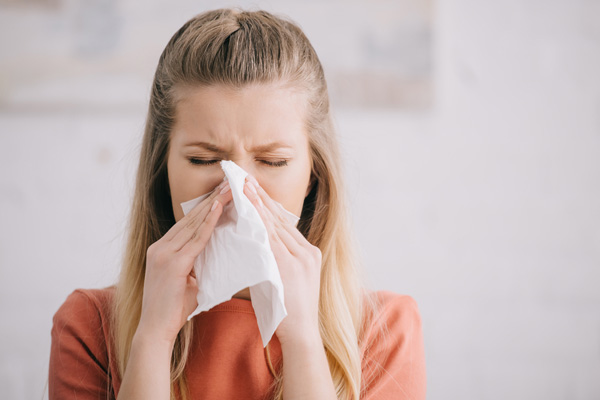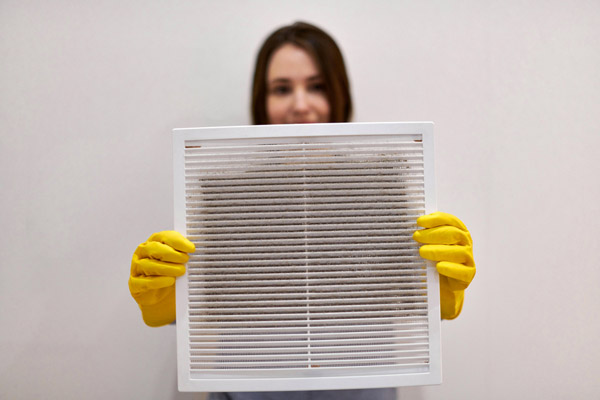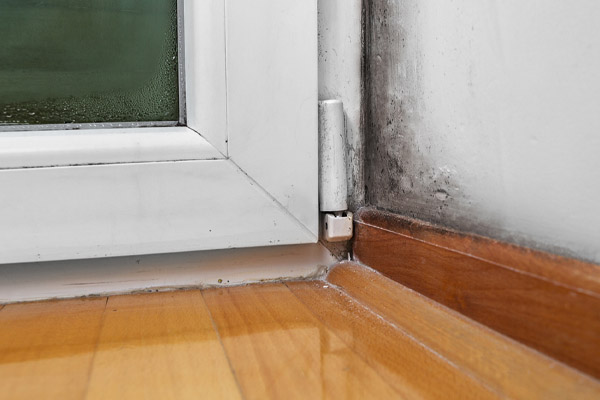Air pollution significantly impacts our comfort, particularly when dense smog envelopes our cities. The instinct to remain indoors until the haze clears is common, yet it’s not a foolproof solution. Surprisingly, the air within our homes can be equally, if not more, contaminated. This can have a direct effect on the well-being of your family. In this article, we delve into the signs of air quality problems to keep an eye out for.
Signs You Need Improved Air Quality in Your Home
Pay attention to the subtle cues your home environment is sending. These indicators often persist and intensify if left unaddressed. Take proactive steps if you observe any of the following air quality problems within your living space:
Persistent Sneezing

Various pollutants in the air can provoke your body’s natural defenses. One common reaction is sneezing as a way to expel these irritants. While occasional sneezing is normal, a non-stop pattern signals that your indoor air is likely the culprit. This continuous sneezing is your body’s way of responding to your home environment.
Coughing
Increased levels of airborne particles can lead to more severe symptoms. Inhaling these particles often results in them becoming trapped in your lungs, creating health issues. Coughing is your body’s reflex to clear these foreign particles. However, this symptom will persist until the quality of your indoor air improves.
Frequent Illness

Dry indoor air can facilitate the movement and survival of airborne pathogens, leading to the quicker spread of illnesses within households and communities. This issue contributes to the common occurrence of colds, coughs, and flu-like symptoms, especially during colder seasons. Manage humidity levels effectively to enhance your home’s air quality.
Unexplained Fatigue
Are you experiencing unusual tiredness while indoors, which seems to dissipate once you step outside? This could indicate that your home environment contains toxic fumes, potentially impairing cognitive functions. Issues like gas leaks or inadequate ventilation could be the culprits. Consult with an HVAC professional to conduct a thorough evaluation.
Persistent Headaches

Frequent, intense headaches may be a sign of exposure to various chemicals. Common household items like cleaning products can release toxic fumes. Additionally, odors from pesticides, pet waste, and accumulated garbage can contribute to feelings of nausea. Moreover, high indoor pollution levels might result in congestion and sinus-related headaches.
Year-Round Allergies
While airborne allergies are often associated with specific seasons and outdoor triggers, experiencing these symptoms outside of these periods can indicate indoor air quality problems. Regular cleaning can help reduce the severity of these symptoms. The use of medications like antihistamines may also provide relief.
Excessive Dust Accumulation
It’s important to act before health issues arise. Take a moment to examine the surfaces in your home. Is there an unusual amount of dust accumulation? Have there been recent renovations or other changes in your home? The presence of excess dust, much of which can be airborne, is a precursor to potential respiratory problems.
Understanding the Significance of High-Quality Indoor Air
The quality of our indoor environment is vital to our overall health and comfort. We spend a substantial amount of time indoors – sleeping, eating, working, or relaxing. Living in spaces with polluted air poses a significant risk due to prolonged exposure to harmful substances. By prioritizing and enhancing indoor air quality, we can safeguard our health and ensure our comfort in our daily activities. High IAQ is synonymous with an improved quality of life, reduced risk of chronic health conditions, and decreased respiratory issues. Staying vigilant with tools like air quality monitors and responding promptly to any concerns can help maintain a healthy indoor environment.
Enhancing Your Home’s Indoor Air Quality
If you recognize any of the signs mentioned earlier, take immediate action. Implementing even small changes can make a significant difference. Here are some of the most effective strategies to achieve superior indoor air quality:
Regular Replacement of HVAC Filters

Your HVAC system filters out pollutants from the air. Over time, these filters can become clogged with dirt, reducing their effectiveness. Regularly changing these filters helps maintain optimal airflow and air quality. This practice purifies your indoor air, extends the lifespan of your HVAC equipment, enhances energy efficiency, and boosts overall system performance. Opt for filters with high MERV ratings to ensure superior air filtration.
Opt for a Whole-House Air Filtration System
While HVAC filters are effective, they might not capture the tiniest of pollutants. Consider installing a whole-house air filtration system for enhanced protection against a broader range of airborne irritants. Consult an HVAC expert to assist you in selecting a system that’s best suited to your home’s specific needs.
Minimize Pollution Sources
Identify and mitigate the sources of indoor air pollutants. Eliminate them once you determine the causes of poor air quality in your home. For instance, enforce a no-smoking policy indoors, switch to eco-friendly, non-toxic cleaning products, and opt for solid wood furniture, which is less likely to emit formaldehyde than composite wood products. These changes can significantly reduce the presence of harmful substances in your indoor air.
Incorporate Indoor Plants for Natural Air Purification
While humans inhale oxygen and exhale carbon dioxide, plants absorb carbon dioxide and release oxygen, creating a beneficial exchange within the home. Besides purifying the air, plants add a calming, aesthetic element to your living space. Some of the most effective plants for indoor air purification include common ivy, peace lily, and dracaena.
Manage Allergens in Your Home
For those particularly sensitive to allergens, minimize their presence indoors. This doesn’t necessarily mean parting with your pets. Regular grooming, like brushing and bathing, can significantly reduce pet dander. Frequent vacuuming helps in removing pet hair and dust. Washing bedding in hot water can effectively eliminate dust mites. Use soap for areas like bathroom tiles to aid in mold removal.
Address Indoor Dampness

Moisture inside your home can result in mold growth, the release of volatile organic compounds (VOCs), property damage, and respiratory issues. Address any water leaks promptly by repairing cracked pipes and fixing leaky roofs. Enhancing ventilation in high-humidity areas like bathrooms and kitchens using dehumidifiers, opening windows, or installing exhaust fans.
Safeguard Against Heating System Hazards
If your home is equipped with a fireplace or a wood-burning stove, be aware that these can emit harmful carcinogens into the air. While gas-powered heating systems, like furnaces, typically pose less risk, be vigilant about potential carbon monoxide leaks. Installing carbon monoxide detectors and adhering to a regular schedule for heating system maintenance can help ensure the air in your home remains clean and safe.
Conclusion
Ensuring the well-being of your family should be a top priority, including providing them with a healthy indoor environment. If you notice ongoing signs of poor air quality, it’s important to take decisive action. Start with basic strategies to alleviate these issues and observe the improvements. For more complex solutions, don’t hesitate to seek the expertise of an HVAC contractor. Investing in high-quality indoor air offers comfort, improved health, and overall quality of life for you and your loved ones.
Reach Out to Modern Comfort for Your HVAC Needs
Modern Comfort provides trusted heating and cooling solutions throughout Central Maryland, and southern and central Pennsylvania. Our team of professionally certified technicians excels in HVAC tune-ups, repairs, installations, and replacements, ensuring your system functions optimally.
We offer competitive pricing for our services, aiming to enhance your comfort and energy efficiency while reducing heating and cooling costs. Whether you need a repair or a system upgrade, we’ll recommend the best options within your budget. Our work comes with a satisfaction guarantee. Contact Modern Comfort for a free in-home estimate or to book a service appointment.
You can click here to contact us now or call us at (410) 429-7252 (MD residents) and (717) 489-3939 (PA residents) to find out more! Click the link to view our service area.

Related Articles:

Recent Articles
